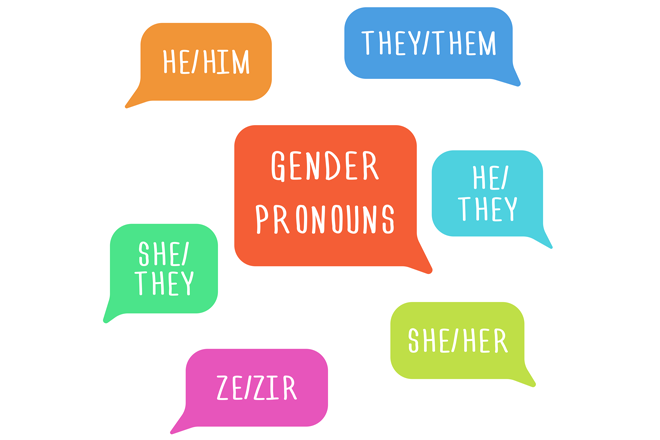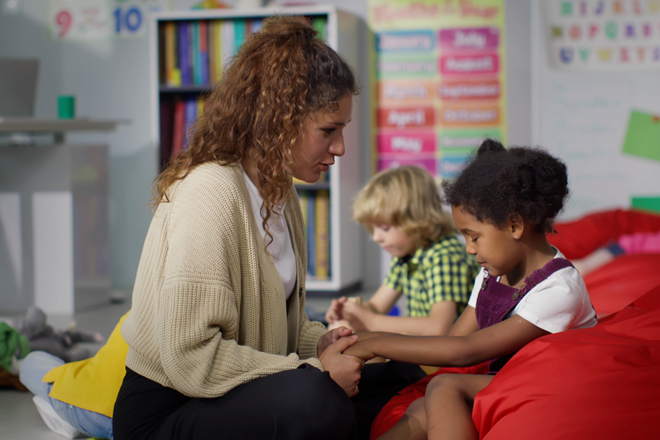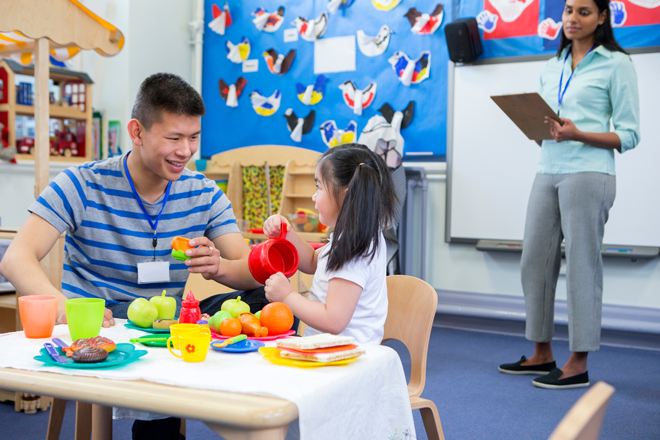In this study, we examined the effectiveness of Tools for Getting Along (TFGA) on teachers’ reports of executive functioning (EF), social-emotional, and behavioral skills of elementary school students. TFGA is a classroom-level prevention curriculum that teaches students problem-solving steps to apply in emotionally charged situations.
Classroom observations are a key tool in educational research and practice, used to evaluate teaching methods, assess student engagement and behavior, and gather data on classroom interactions to inform instructional strategies and policy decisions. However, observations are not immune to implicit biases—or attitudes, behaviors, and actions that are prejudiced in favor of or against one person or group compared to another.
Practice-based coaching (PBC) promotes a strong collaborative partnership between teachers and coaches to facilitate the use of effective instructional practices. The PBC process includes skills instruction on BEST in CLASS practices, shared goals and action planning, implementation support, classroom observation, and reflection and feedback.









